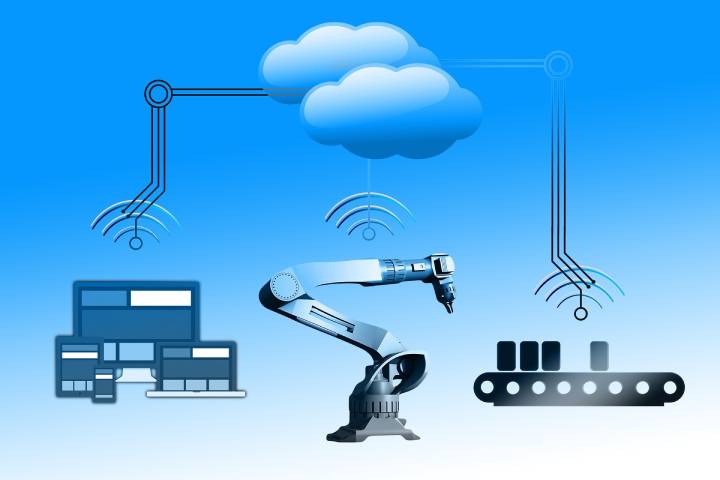Advantages Of Implementing The Internet Of Things In The Workplace

The advancement of technology grows at an unstoppable rate. In the XXI century, smart devices have become considered essential gadgets in our day-to-day lives. So much so that even few, today, could understand the present (and a future) without them. Of course, advances in IT continue their course, intending to make everyday life much easier for society and concepts like the Internet of Things or IoT.
But what exactly is the Internet of Things? It is a concept that encompasses those everyday objects or systems of physical devices that receive and transfer data through wireless connections using computer devices, that is, without (practically) human intervention. Light regulators, remote control of environmental parameters, smart garage doors. A technological deployment whose function is none other than to improve people’s lives.
Hence, many countries have begun to bet heavily on it in recent years. It is also considered one of the countries with the most users connected to the Internet, focusing on both work and social and personal purposes. Globally, and by 2030, it is estimated that the number of connected devices will increase to 25,000 million.
In recent years, many countries have started betting heavily on the Internet of Things. Regarding the professional field, its relevance was even more evidenced by the impact of COVID-19. During the pandemic, 79% of companies with IoT projects considered this technology a key element to ensure the continuity of their business3. But what are the benefits of implementing the IoT in the workplace?
- Machine connection. The main characteristic that defines IoT is connecting objects to the Internet, making them communicate with each other to take full advantage of all applications.
- Efficiency in communication. The fact that all devices are connected allows efficient communication management. In this way, operations will be optimized, which will lead to a reduction in costs for companies.
- Minimization of occupational risk. Thanks to the Internet of Things, we can minimize occupational risk since no physical operator performs the task, but a sensor automatically controls everything. In other words, it is the devices connected to the Internet that work autonomously without the need for operators.
- Maximize profits. Work processes can be more beneficial if we use the Internet of Things. If the devices are connected to centralized systems, the company can keep track of all the elements, collect information and be more efficient in every one of them.
- Save energy. the offices of the future aim to increase their efficiency and be respectful of the environment. Thanks to the Internet of Things, companies can automate the work environment by making the lighting and heating control system intelligent, thus regulating it to reduce costs and make the most of energy.
Also Read: Internet Of Things (IoT) In Education Applications And Advantages
